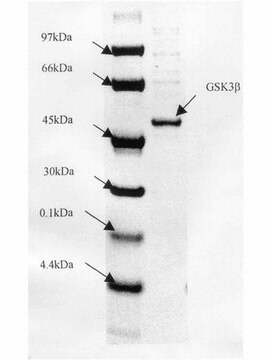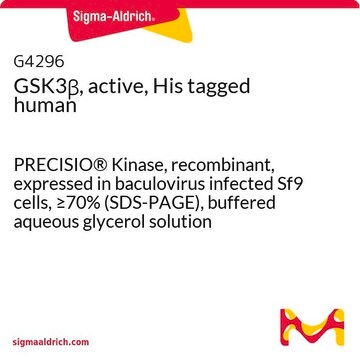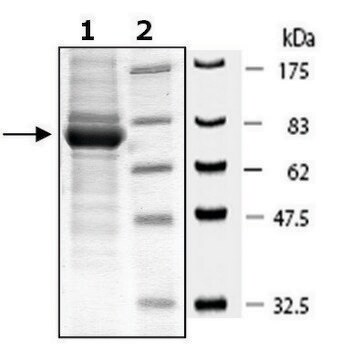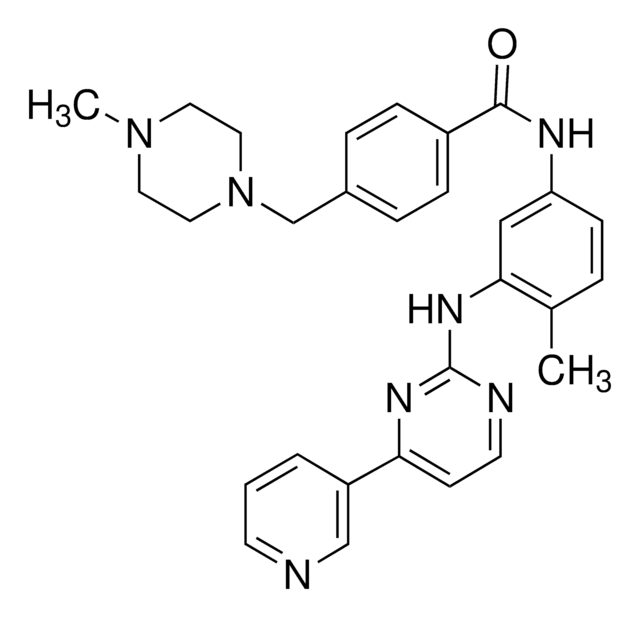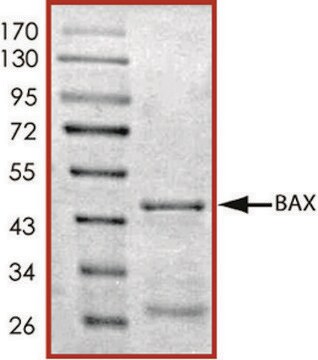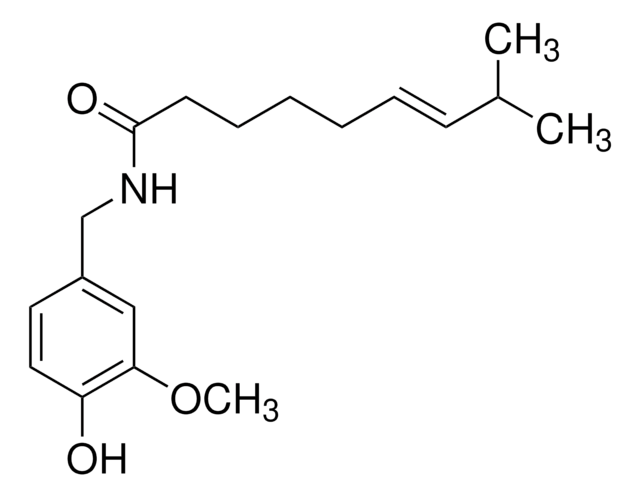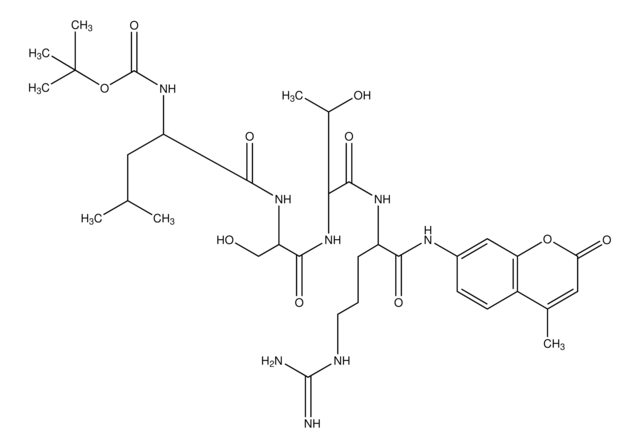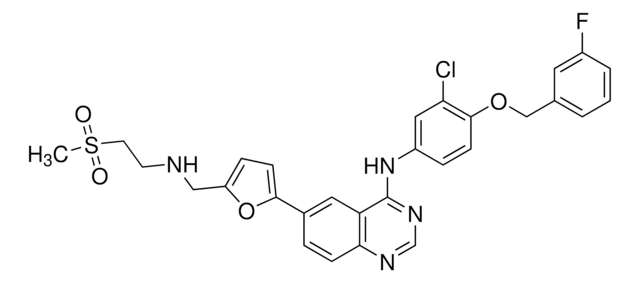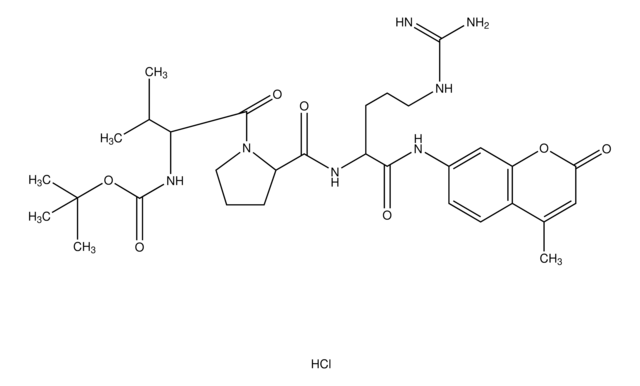SRP0356
GSK3β active human
recombinant, expressed in baculovirus infected Sf9 cells, ≥80% (SDS-PAGE)
Sinónimos:
glycogen synthase kinase 3 beta
About This Item
Productos recomendados
origen biológico
human
recombinante
expressed in baculovirus infected Sf9 cells
Ensayo
≥80% (SDS-PAGE)
Formulario
aqueous solution
actividad específica
≥500 pmol/min-μg
mol peso
73 kDa
envase
pkg of 10 μg
técnicas
activity assay: suitable
inhibition assay: suitable
Nº de acceso NCBI
Nº de acceso UniProt
Condiciones de envío
dry ice
temp. de almacenamiento
−70°C
Información sobre el gen
human ... GSK3B(2932)
Descripción general
Aplicación
Acciones bioquímicas o fisiológicas
Código de clase de almacenamiento
12 - Non Combustible Liquids
Clase de riesgo para el agua (WGK)
WGK 1
Punto de inflamabilidad (°F)
Not applicable
Punto de inflamabilidad (°C)
Not applicable
Elija entre una de las versiones más recientes:
Certificados de análisis (COA)
¿No ve la versión correcta?
Si necesita una versión concreta, puede buscar un certificado específico por el número de lote.
¿Ya tiene este producto?
Encuentre la documentación para los productos que ha comprado recientemente en la Biblioteca de documentos.
Nuestro equipo de científicos tiene experiencia en todas las áreas de investigación: Ciencias de la vida, Ciencia de los materiales, Síntesis química, Cromatografía, Analítica y muchas otras.
Póngase en contacto con el Servicio técnico